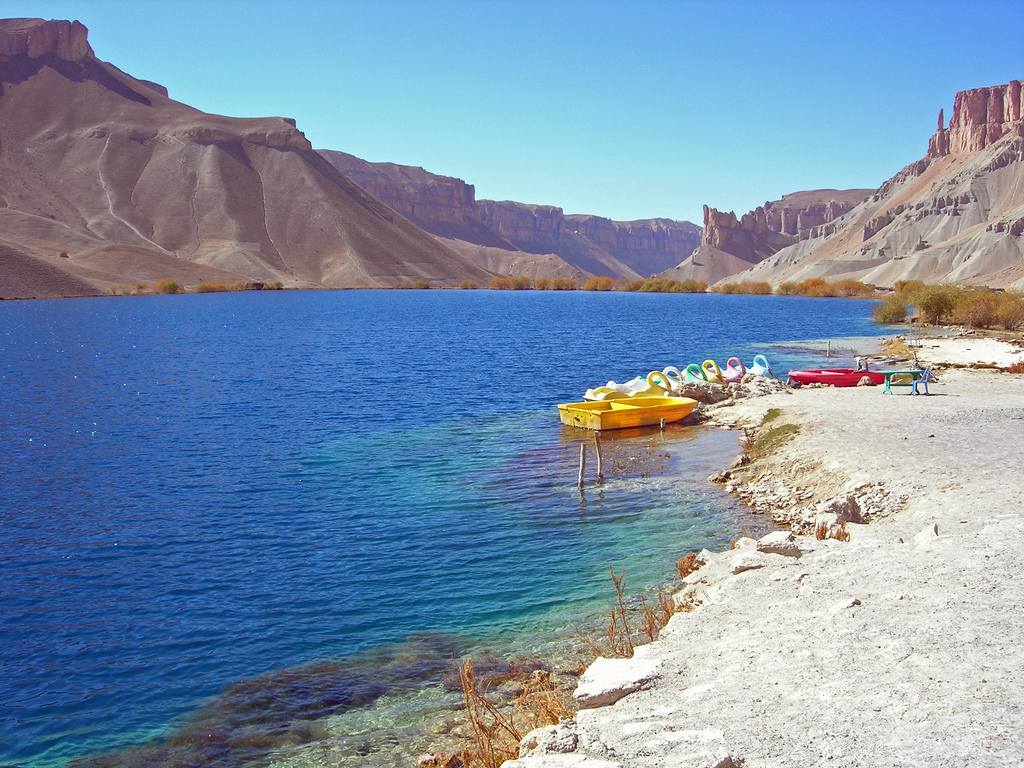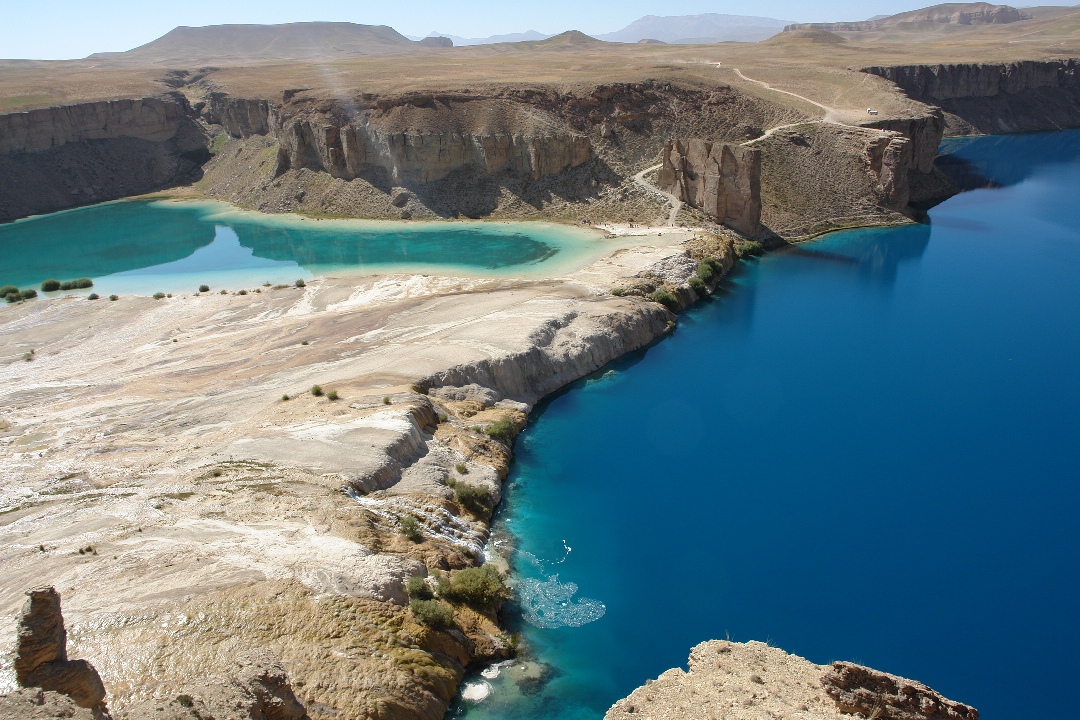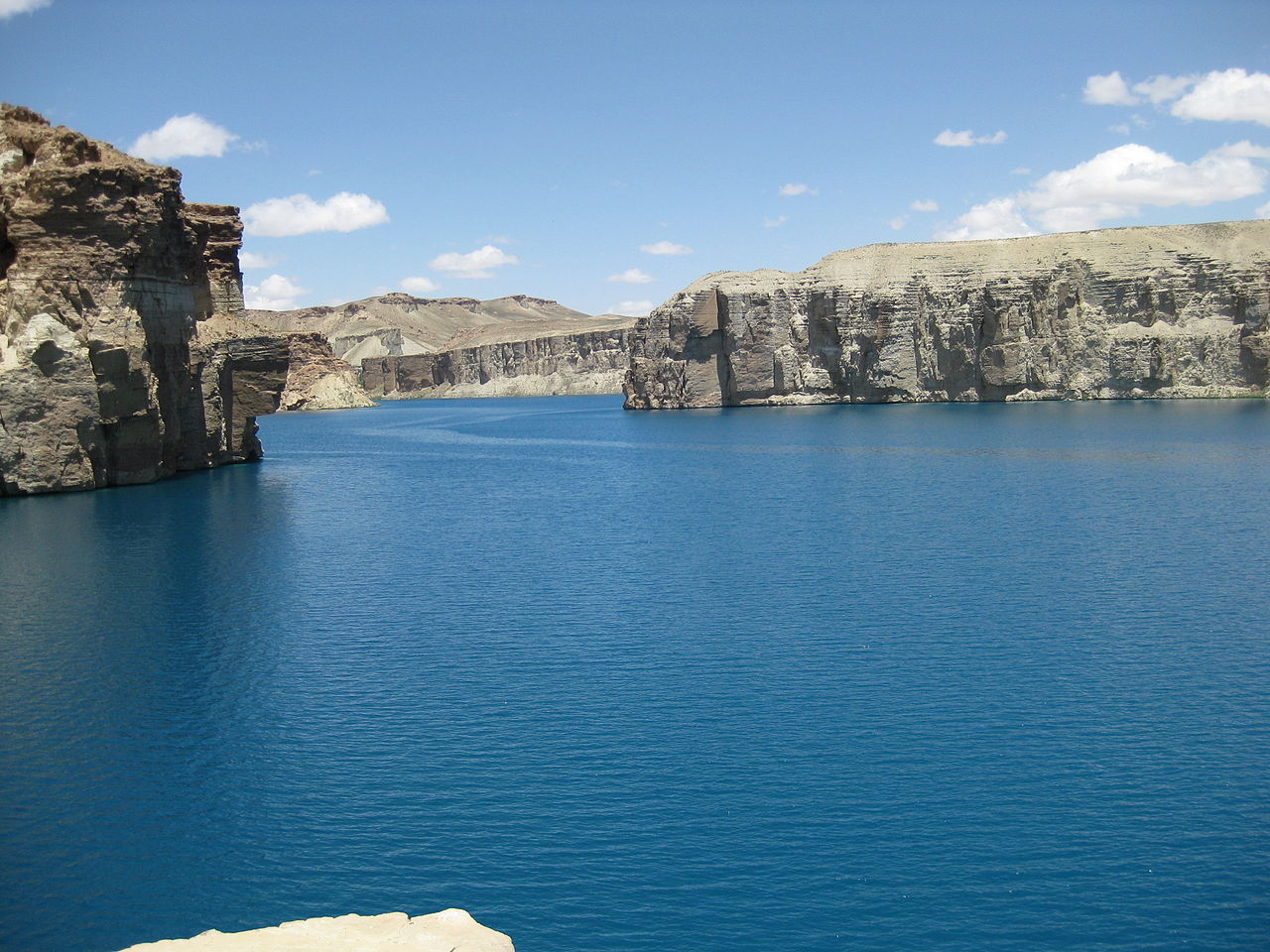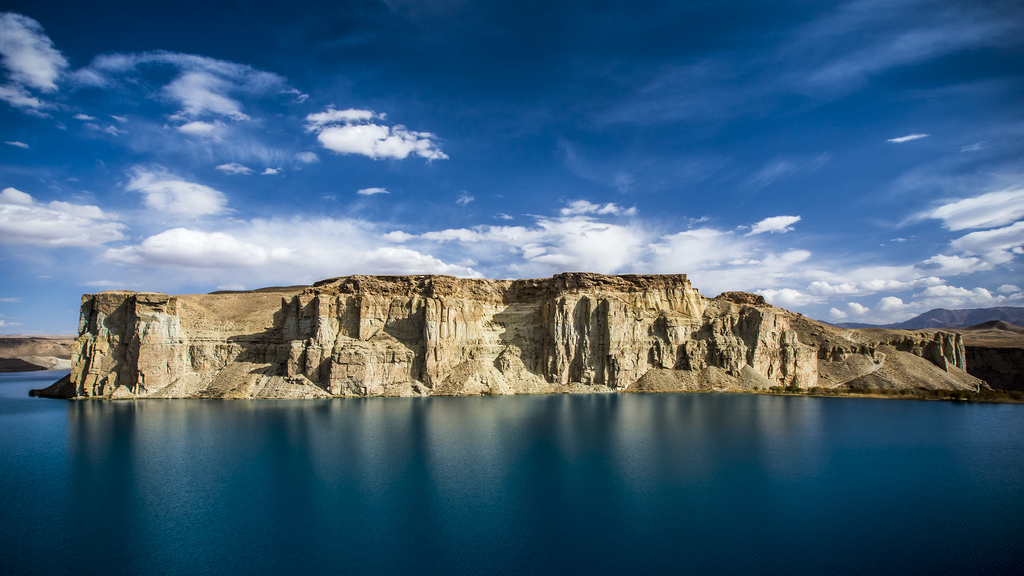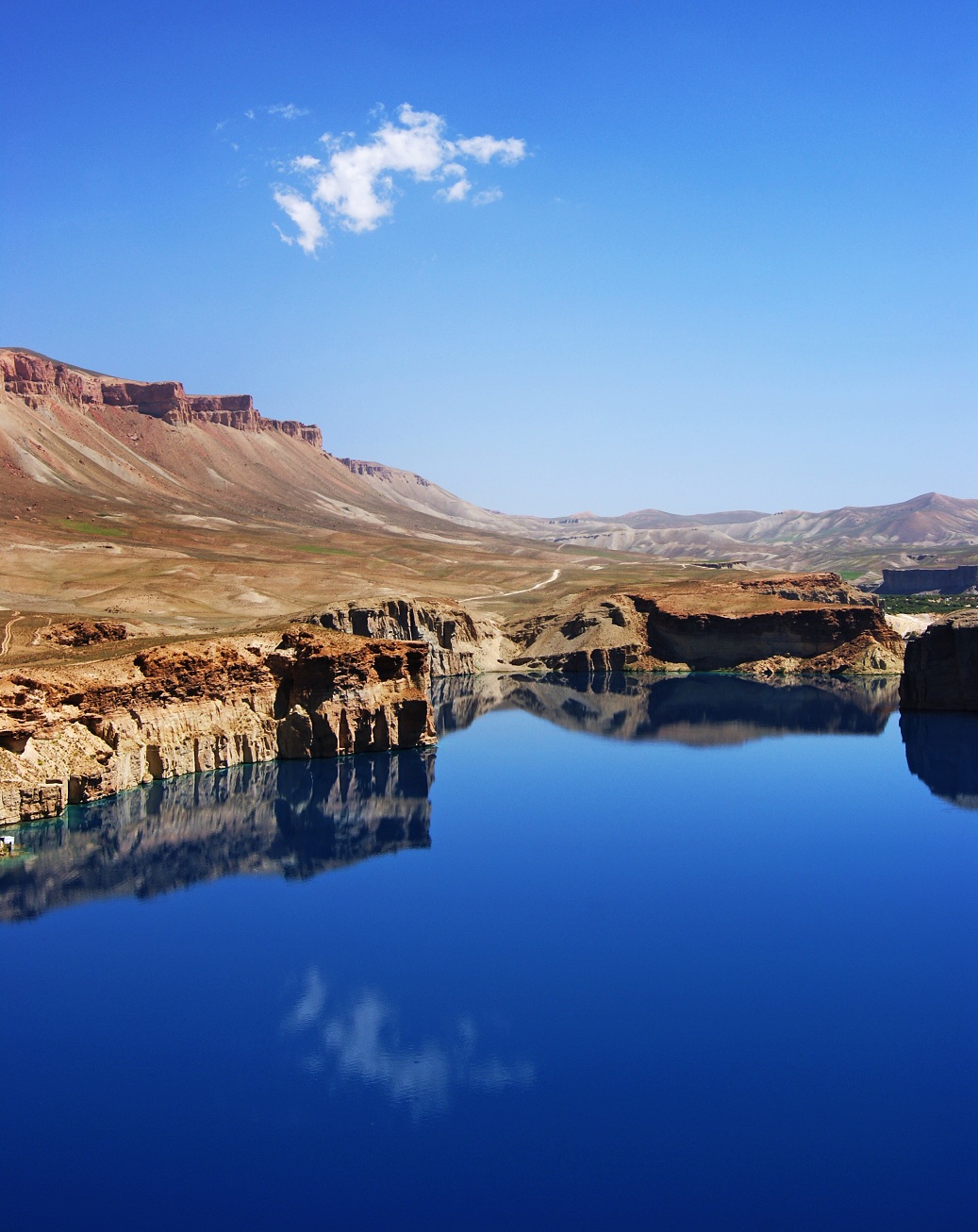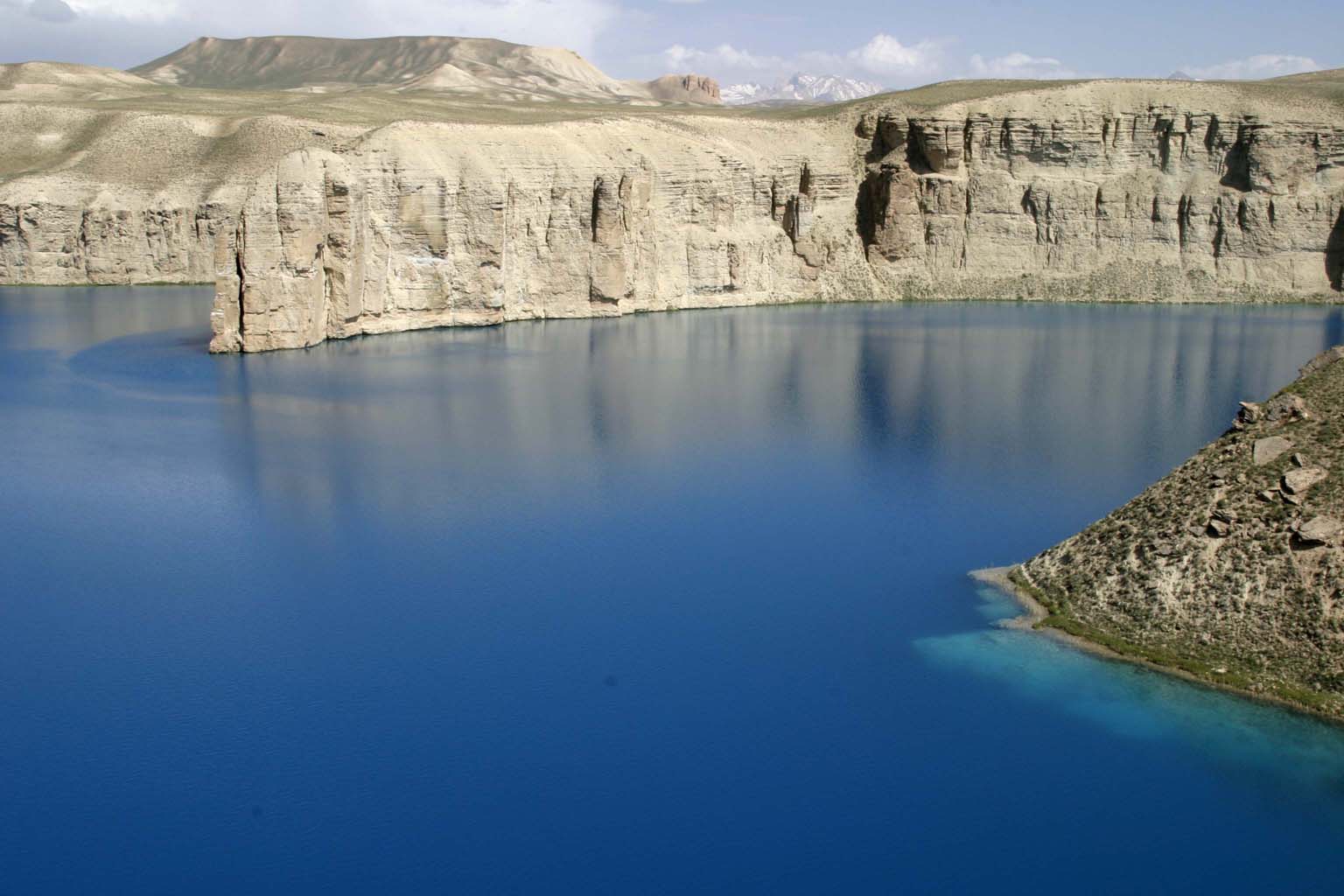Band-e Amir National Park is Afghanistan's first national park, located in the Bamyan Province. It is a series of six deep blue lakes separated by natural dams made of travertine, a mineral deposit. The lakes are situated in the Hindu Kush mountains of central Afghanistan at approximately 3000 m of elevation, west of the famous Buddhas of Bamiyan.
They were created by the carbon dioxide rich water oozing out of the faults and fractures to deposit calcium carbonate precipitate in the form of travertine walls that today store the water of these lakes. Band-e Amir is one of the few rare natural lakes in the world which are created by travertine systems. The site of Band-e Amir has been described as Afghanistan's Grand Canyon, and draws thousands of tourists a year.
The name Band-e Amir literally means "Commander's Dam" which is believed by some to be a reference to Ali, the fourth Caliph of the Muslims. The area is dominated by ethnic Hazaras, who make up around 8-15% of Afghanistan's population and the most of them are followers of Shia Islam.
Band-e Amir was to become Afghanistan's first national park in the 1960s but this was delayed due to political crises and the decades of wars. Parts of the 1975 Bollywood film Dharmatma, with Feroz Khan and Hema Malini, were filmed at the Band-e Amir National Park.
In 2004, Band-e Amir was submitted for recognition as a World Heritage site.[3] In 2009, Band-e Amir was finally declared Afghanistan's first national park. As of 2013, about 6,000 local tourists visit the Band-e Amir National Park every year. The area is protected by a small number of park rangers.[2




